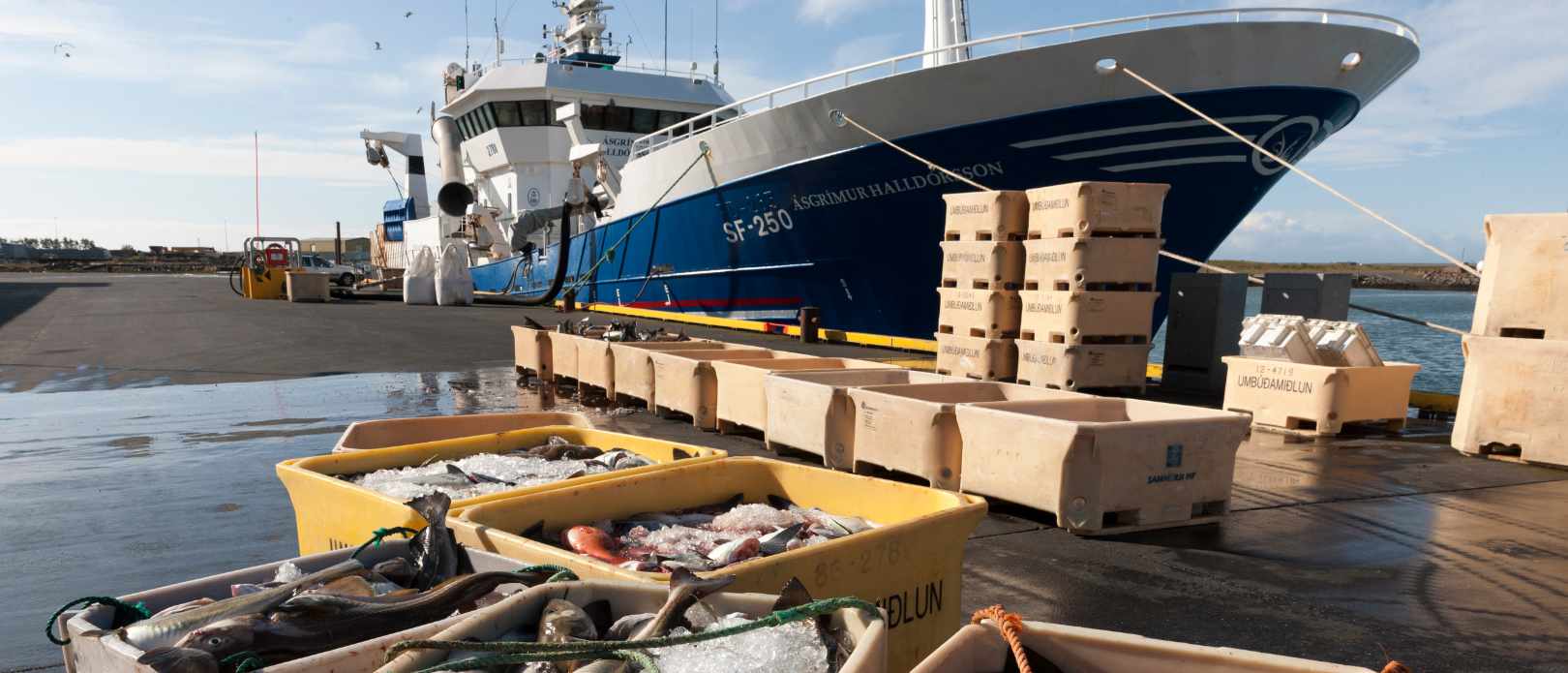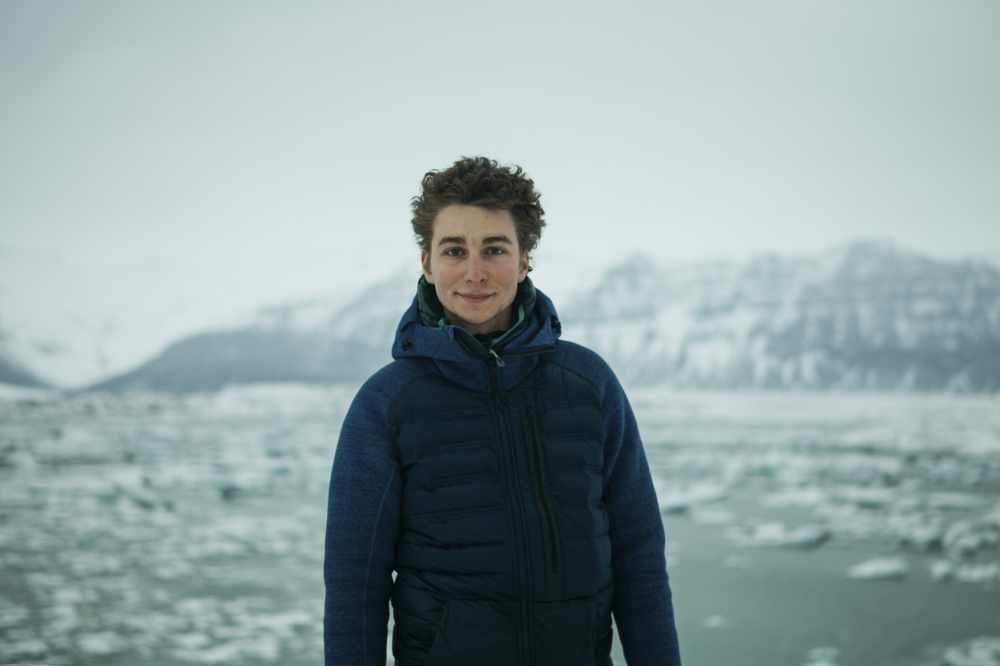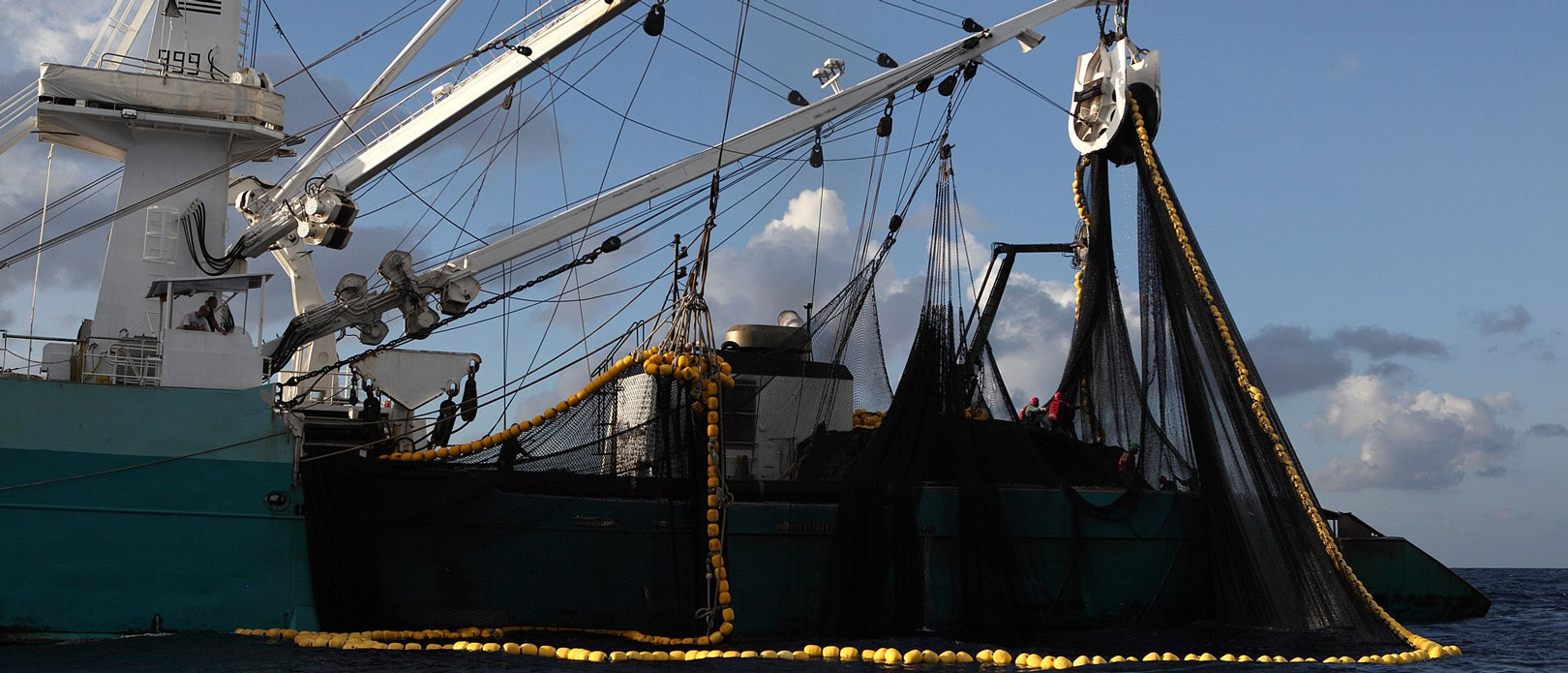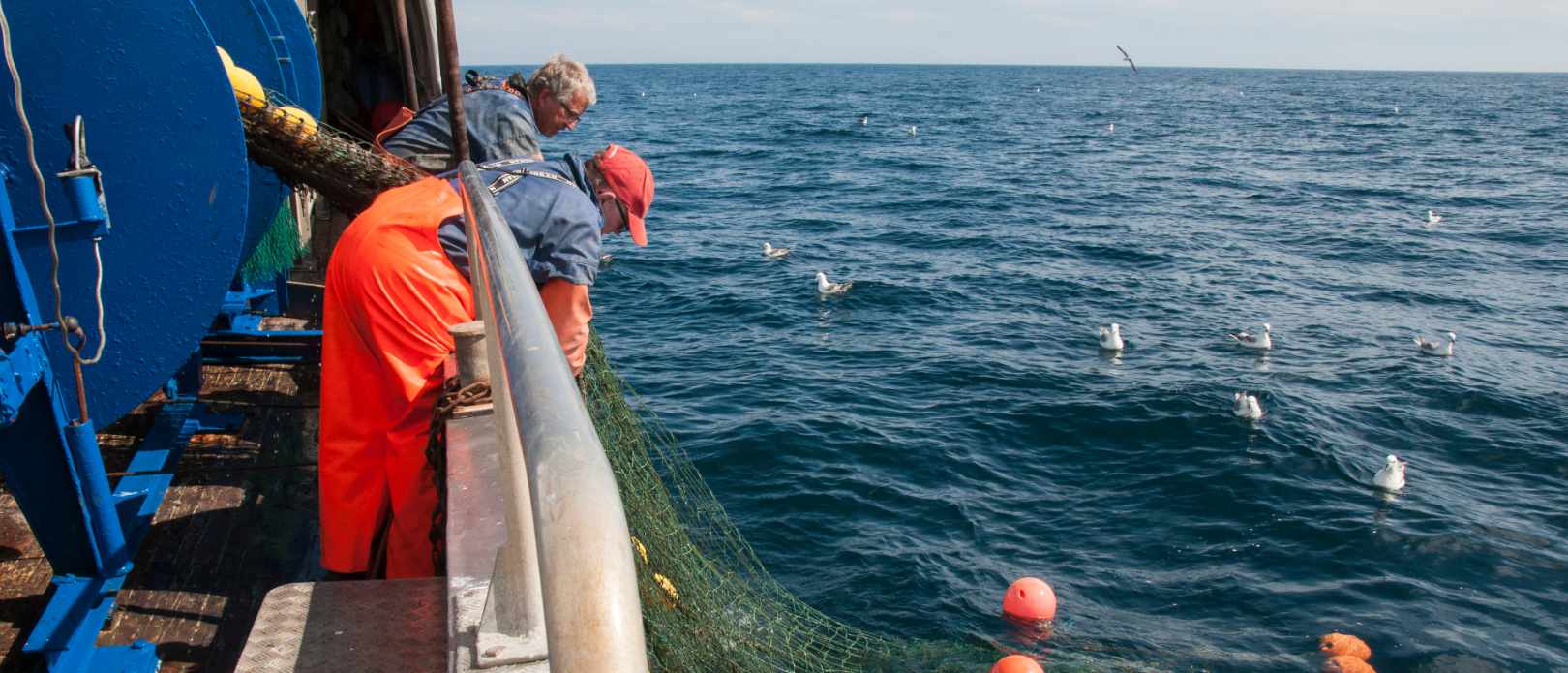KEYSTONE ACTORS
Getting the seafood sector’s big fish to swim together for sustainability

Photo: A. Maslennikov/Azote
Centre researcher Jean-Baptiste Jouffray reflects on what it will take to get the world’s biggest seafood companies to transform and what science must do to help them
- In October 2020, SeaBOS companies committed for the first time to a set of time-bound and measurable goals for a sustainable ocean
- Given their size and influence, these “keystone actors” have the potential to set new industry norms and accelerate transformation towards sustainability
- Academic integrity is crucial to this process and includes being entirely funded independently of the companies
As part of World Ocean Day 2021 and the launch of the Decade for Ocean Science we speak with Jean-Baptiste Jouffray, a centre post-doctoral researcher. Together we delve into why engaging the seafood industry’s so-called “keystone actors” is so crucial to reaching a sustainable ocean.
One of the most prominent examples of such actors are those behind the SeaBOS initiative, a unique collaboration between scientists and the world’s ten biggest seafood companies seeking to lead a global transformation towards sustainable seafood production and a healthy ocean.
But this level of science-industry engagement is relatively new.
"It’s an experiment to test whether scientists can collaborate with business leaders in support of a truly sustainable, equitable and inclusive ocean economy,” according to Jouffray, who has been heavily involved with this cutting edge transdisciplinary process.
Why is engaging “keystone actors” in the seafood industry so important for an ocean that supports life and livelihoods?
It is important because these companies have a disproportionate and unprecedented capacity to influence the biosphere and those who depend on it. Given their size and influence, voluntary sustainability commitments by keystone actors have the potential to set new industry norms and accelerate transformation towards sustainability.
What we are doing is exploring the possibility of leveraging this influence in parallel with more effective public policies and improved regulations.

Jean-Baptiste Jouffray. Photo: P. Jouffray
It’s not a “either/or” situation but rather “all hands on deck”.
Jean-Baptiste Jouffray
What is the role of science in all of this?
I believe scientists have a critical role to play in this process. Corporate leaders now increasingly regard sustainability as key for their business and a chance for companies to add value and to access emerging markets.
This presents both opportunities and risks.
The opportunity is for the private sector to assume leadership, engage in more sustainable practices and contribute to just transitions. The risk is that companies hijack the sustainability agenda and define it in a way that is convenient for their operations and legitimates self-regulations over national or international rules, failing to address major social and environmental issues.
With that in mind, engaging “keystone actors” represents an experiment to test whether scientists can collaborate with business leaders to ensure science-based decision-making in support of a truly sustainable, equitable and inclusive ocean economy.
What have the companies in SeaBOS committed to, and what have we learned from this process?
The overarching ambition of SeaBOS is to lead a global transformation towards sustainable seafood production and a healthy ocean.
In October 2020, the SeaBOS companies committed for the first time to a set of time-bound and measurable goals to be achieved by the end of 2021:
- Eliminate IUU fishing and forced, bonded and child labour in our operations– and implement measures to address those issues in their supply chains – with public reporting on progress in 2022 and 2025
- Extend the collaboration with the Global Ghost Gear Initiative to solve the problem of lost and abandoned fishing gear; and combine to clean up plastics pollution from our coasts and waterways
- Agree on a strategy for reducing impacts on endangered species and the use of antibiotics
- Set CO2 emissions reduction goals and reporting approaches from each company
This is quite ambitious. Will they succeed?
Getting there took more than five years so one lesson learnt is obviously that transformation takes time. Building trust among all the actors and being cognizant of different norms and knowledge was essential in this process.
While it should be straightforward for companies to transform their own operations, it can be much more difficult to influence their suppliers and the suppliers of their suppliers, as some of the issues are systemic.
Jean-Baptiste Jouffray
Ultimately, shifting the seafood industry towards sustainability will require creating the right incentives through a collective and collaborative effort across the entire value chain: from policymakers and regulatory bodies to business, financiers, civil society and the scientific community.
How do we avoid greenwashing in these kinds of initiatives?
Maybe we don’t? Maybe it is inherent to these kinds of initiatives – especially in the early phases – and the real question is whether we can eventually move beyond greenwashing and show some truly transformative change. This is where building trust and having time-bound goals become essential to hold companies accountable and ensure they move not only from words to actions but from actions to results.
The outcomes of SeaBOS have so far exceeded our expectations, but it remains an ongoing experiment. Only time will tell whether the initiative has positive and long-lasting effects on ocean life and livelihoods.
Jean-Baptiste Jouffray
Ultimately, it is up to the companies to deliver on their joint commitments, while we, scientists, keep monitoring the progress of the initiative and draw out scientific insights from the process of facilitating such science-business partnership. Academic integrity is crucial to this process and includes being entirely funded independently of the companies.









